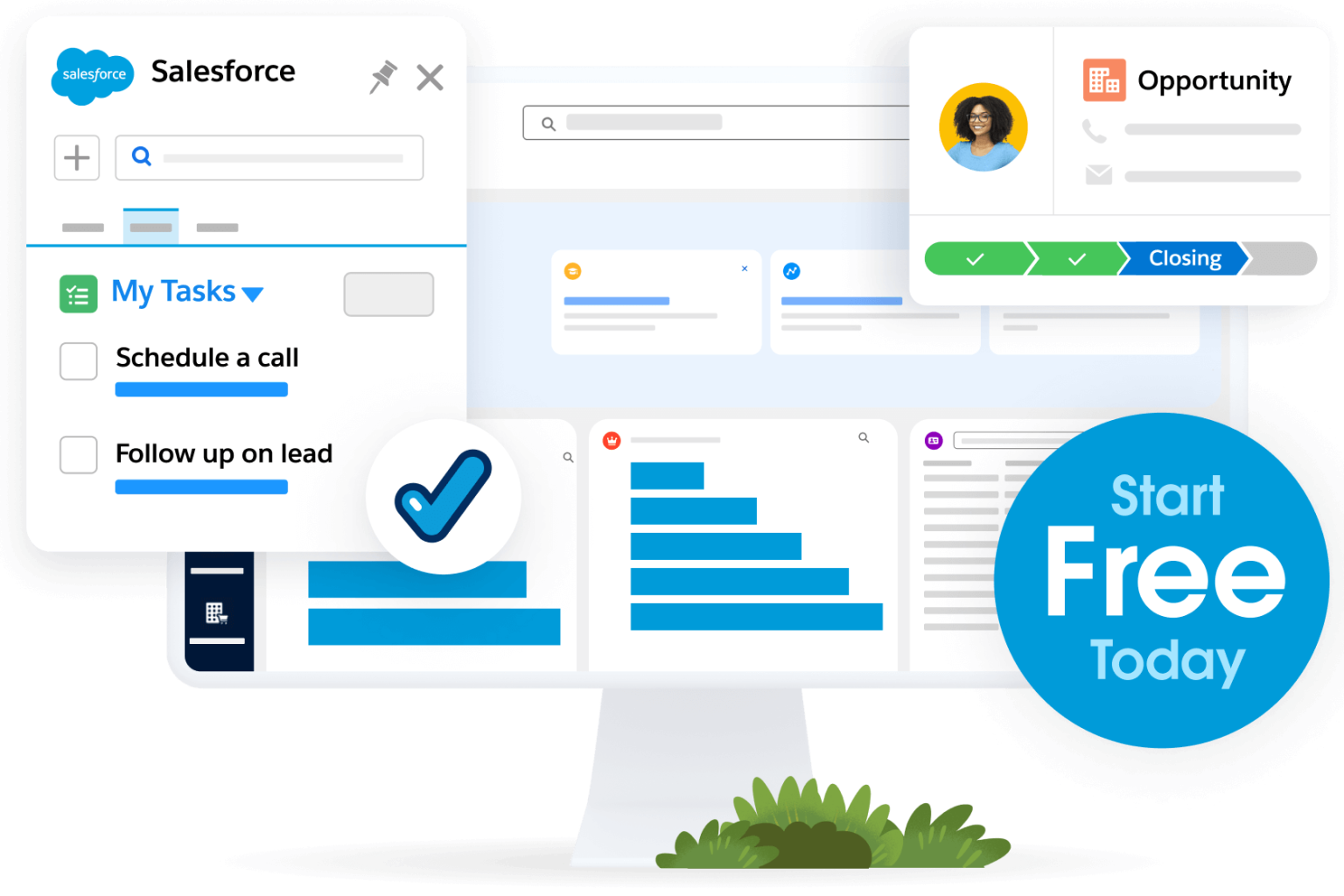5 Tips to Maximize Your Small Business SEO

Learn how SMBs and growing businesses can use search engine optimization (SEO) to stay competitive while keeping costs low.
Traditional online marketing techniques such as paid digital advertising work, but advertising costs have left small businesses struggling to compete. An effective alternative to paid advertising is search engine optimization (SEO), which allows your small business to stay competitive and keep costs relatively low.
All it takes are the seeds of a robust strategy, a bit of hard work, and time for the fruits of your labor to become reality. If you’re looking maximize your small business SEO, you find these tips, benefits and services beneficial.
What you’ll learn:
What is SEO and how does it work?
What is small business SEO?
Five tips to do small business SEO right
Three benefits of small business SEO
How should small businesses get started with SEO?
How to choose small-business SEO services
What is SEO and how does it work?
SEO is a technique to improve a website’s organic visibility online. The goal is to have your web property show up as close to the top of the first page of a search engine’s results as possible (such as Google). Well-executed small business SEO can increase traffic to your website without having to pay for an ad.
Many components can contribute to better organic visibility. A few that are the most important include the page’s content, targeting the right keywords, and backlinks. Good SEO also hinges on some technical aspects, such as site speed and mobile optimization.
Start with SMB Basics
Before jumping into the details, here’s a glossary of common SEO terms:
- Organic search results: This is also called the Search Engine Results Page (SERP). When a search engine user types a query or search term into a search engine like Google, a list of results is generated. This list is made up of the most relevant pages to that keyword.
- Keyword ranking: This is your web page’s exact position in search results for a specific keyword. Most web searches result in hundreds of pages of results, and usually there are ten or more results on a page. The closer you are to ranking number one on the first page, the more visitors and in turn the more traffic your website will receive.
- Local search/Local SEO: This aspect of SEO is used to promote a local business online. For example, if a user types “shoe store Boston” into the search engine, the search results will list the web properties of any shoe stores in Boston that rank well for that keyword. This is very different from just typing in “shoe store”, which would likely turn up online retailers not specific to a geography.
- Backlinks: These are links from other websites to yours. Backlinks can help increase your page authority and keyword ranking. But if you’re not careful, they can decrease both and hurt your website’s ranking. Check to make sure you only have backlinks from reputable sources bringing traffic to your page. Every couple of months, keep an eye out for anything that looks spammy and disavow the links to prevent them from bringing down your ranking.
- Technical SEO: The technical side of SEO, as opposed to the content side, ensures that search engines can crawl and index your website (meaning “read” your content and know how to rank it against similar content). Technical small business SEO focuses on backend information like your HTML code, site speed and mobile optimization (see below), your sitemap, and website architecture.
- Site speed: How long does it take for your website to load? This is your site speed. Google considers this an important factor when ranking websites in search results. The search engine favors websites that load more quickly and efficiently because it improves the user experience. If your site is bogged down by heavy images or videos, for example, and not designed to load quickly, it will take a hit in search.
- Mobile optimization: How your website displays on mobile devices is another important factor in website ranking. If you built your web property on a desktop and did not check to see that it scales on a variety of mobile devices, your site will take a hit in its search results.
What is small business SEO?
Small business SEO is the process of improving your small business’ website presence on search engines, so it is visible in queries that relate to what you offer.
There is a difference between small business SEO and local SEO. Local helps businesses appear in location-based search results. While it may overlap, some small businesses need to leverage local traffic, however, small business SEO is now global, worldwide due to digital demand. If you’re an SMB that can ship your product or service anywhere, local SEO doesn’t make sense to you.
SEO is important for SMBs as it helps you increase organic traffic without spending money on advertisements — something all small business has to navigate. When your website ranks higher in search, you drive more traffic, generate more engagement, make more sales, and gain more loyal customers. You see the beautiful arc here, it’s every SMBs dream.
Kickstart your SMB with Starter
See big results for your small business from day one with Starter Suite — the all-in-one suite of the marketing, sales, service, and commerce tools you need to succeed.



Five tips to do small business SEO right
These tips will help you understand how to implement SEO for your small business.
1. SEO is not only for Google
As a small and growing business, your site should look good on Google. But depending on your audience, other sites may be equally as valuable (or more so), including Amazon, Reddit, Yelp, YouTube, Instagram, and others that have their own SEO strategies. Figure out where you want to spend the majority of your efforts and start there.
2. SEO strategy is effective, but not instant
While SEO isn’t free or instant, it is effective. How long it takes for SEO to work depends on where you start. If you are in the early stages of building out your SEO strategy, expect at least six months to see results – even more if you’re building a new website. Remember that SEO is a continual process and it builds upon itself.
The foundation you lay during those first months will make the process easier later. The more effort you devote to SEO, the harder it will be for your competitors to outperform you.
3. Target the right keywords
Plan your online content with keywords specific to your business. Not sure which keywords to target? Use a keyword research tool such as Ahrefs, Semrush, AnswerThePublic or BuzzSumo; there are a few that aren’t too costly. This will help the right audience find your most relevant content and website.
4. Write for humans first, and search engines second
High-quality, engaging, and relevant content that incorporates the targeted keyword will entice people to stay on your website, read for longer, and interact with more content. If you can, consider answering popular questions relevant to your business. Showcase solutions your customers would want to see.
Tempting as it may be, do not include irrelevant keywords or content that is stuffed to the brim with the same keyword. Your human readers won’t stand for it, and this content will negatively impact your search visibility. Search engines strongly take this into consideration when determining which results to display.
5. Maximize local search to your advantage
Your small business can find huge success targeting local searches. As the stats prove, people searching locally are potential customers waiting to be converted. According to Sagapixel data, almost half of all the searches on Google have local intent. Seventy-two percent of consumers that perform a local search visit a store within five miles of their current location.
When doing local search optimization, be sure to claim your Google Business page. This will help you show up in Google maps and in “near me” search results. For more localized results, weave your specific city or state in with your target keyword.
Learn to write SEO content
Make the most of organic search by optimizing your digital content. Help customers find you, and keep humans engaged.



Benefits of small business SEO
According to BrightEdge research, organic search accounts for 53% of all online traffic and contributes to 44% of revenue share. SEO brings in more online readers through organic search – the largest digital channel.
SEO improves brand awareness. Good SEO will help you to show up ahead of competitors in search results. If researching prospects come across your site, your brand will be top of mind when they are ready to make a purchase.
If done correctly, SEO is highly effective – but it’s not something that happens overnight. It takes time and effort to set the foundation, but once you have it, the rewards are great. Like growing a plant, the more you nurture your SEO, the more it will grow.
How should small businesses get started with SEO?
The first step is to complete a technical audit and a content audit. Audits highlight areas where you are doing well and areas that need improvement. An audit is a great place to start whether you have done a little bit of SEO or none at all. Once your audit is completed, you will know the exact scope of work needed to improve your SEO.
Conduct a content audit for SEO
A content audit should do two things: Help uncover opportunities for new content, and highlight existing content needing attention. It should be a full list of all your web content, like blogs, combined with traffic, engagement, ranking keywords, and backlink data.
Learn more about content audits here.
Conduct a technical audit for SEO
The technical audit will show you areas where your website structure and backend need improvement. Highlight pages with missing or duplicative page titles or meta descriptions. You should also track page speed, broken links, or redirect chains on each page. You can even get more technical and dive into canonical tags, hreflang, or schema markup.
Learn more about technical audits here.
How to choose small-business SEO services
Not sure you want to tackle this all yourself? There’s no shortage of SEO experts waiting to help small businesses with an SEO strategy. Finding the right agency or person should be as important as getting the right strategy.
While an in-house SEO expert is probably not a viable option for your small business, there are other ways to get your SEO needs met. Many agencies offer a variety of packages to suit small businesses. Some may even propose a flat rate contract based on the services you want.
This option will let you know the project’s exact cost and guarantee fulfillment. If you are willing to do the work but need guidance to get started, you can look into hourly SEO consultants.
As with most business services, you get what you pay for when it comes to SEO. You want whomever you hire to provide you with quality recommendations. Here are some questions to ask a potential agency:
- What niches do you specialize in?
- What does the process look like, and what will you be working on month-to-month?
- What is your link building strategy?
- How do you track progress?
- How do you report?
- How often will you review and update the strategy?
- Do you have any case studies of similar projects?
- Is there a minimum term commitment?
Whether you decide to tackle SEO on your own or hire an expert, it is critical to have the right SEO foundation and strategy. In the long run this can be a huge benefit to your business and your bottom line.
Digital marketer and SEO professional Rosy Callejas contributed to this article.
Kickstart your SMB with Starter Suite
See results from day one with a CRM designed for SMBs — the all-in-one suite for productivity. It all starts with Starter Suite.






























